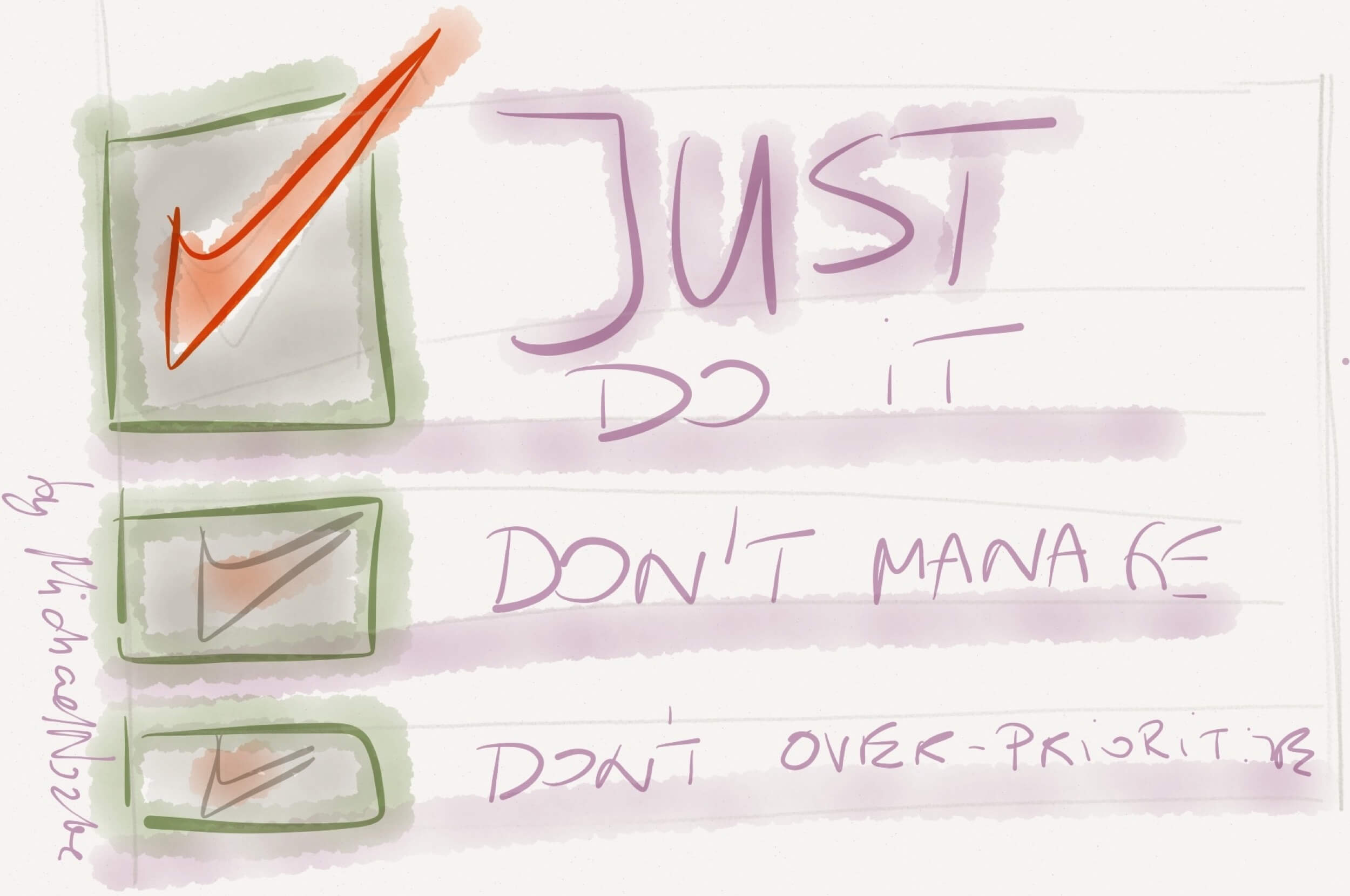Getting Tasks Done vs Managing Tasks
✔️Productivity,✏️Drawings
Last week we had a “Nozbe Team Meeting” in one of the most beautiful Poland’s cities: Crocow (Kraków). We are a team of 12 now and we all work remotely. Some of us haven’t seen each other ever before. We spent three intensive days mostly socializing and not working. We focused on talking about how we work and what we do and how we see the future of our product - Nozbe. Our strategy. Our values. And Getting Things Done with all that:

What it means to: “Simply Get It All Done”
Nozbe’s tagline hasn’t changed a lot since I launched it in 2007. It was “Simply Get Things Done”, later “Simply Get It Done” and now “Simply Get Everything Done” or even “Simply Get It All Done”. Anyway, it’s been about “getting tasks done”.
Why does it matter? How is it important? Well, this is critical. Nozbe is very often categorized as a “task manager” application that belongs to the “task mangers” or “project managers” category.
I embraced this categorization but I never liked it. I always insisted that Nozbe is not about “managing tasks” but about “getting tasks done” (and “simply” at that), meaning we are in business od “doing” and not “managing”. And making it “simple”.
A heated discussion about “most requested features”
Folks who use Nozbe know my firm stand (a strong no-no) on “sub-projects”, “sub-tasks”, or “prioritization”. They know that I’m all for flat hierarchy (the flatter the better) and prioritizing by dragging and dropping stuff to the top or bottom of the list (instead of popular 1-3 priority system). I believe that simple solutions work even in complex situations.
We do support some sort of hierarchy (you can use “labels” to group projects together, you can use “contexts” to set up priorities and in new version of Nozbe you’ll be able to add “checklists” to tasks if you really want a kind of sub-task experience) but we don’t encourage it. And that’s the difference. We want to be able to give our “advanced users” many advanced features but on the other hand we want to make sure we don’t encourage too much fiddling with tasks for the rest of us.
Delfina, our Customer Happiness Officer (yes, that’s her official title) together with the rest of our support gals, prepared a list of “most requested features” for us to talk about. It was a very heated discussion with developers saying what they think can and can’t be done and support gals saying what (from the customers’ standpoint) must and must not be done. It was a tough discussion but a very fruitful one. Because between the can-dos and no-can-dos and must-dos we realized we have to take our mission into consideration.
It was a great chance of reiterating our values about “doing stuff” vs “managing stuff”. We were forced to think “out of the box” about what customers really needed and about what they said they wanted. From my standpoint (as CEO and founder) it was great to see the team embracing our values and analyzing each feature with these values in mind.
Suffice to say, it’s not like we won’t implement what customers are asking us to. We will, but not everything, and very often in a way they don’t expect us to. Next month with new Nozbe Desktop and “rich comments” you’ll see what I have in mind. We’ve analyzed features for at least 6 months ahead and we will roll them out, but we’ll never compromise our values of “getting tasks done”. Nozbe is not a “task manager” but rather a “task doer”.
By designing our app we teach people productivity
It sounds like cliche, but it’s true - the way we design the app is the way we “teach” our customers how to get things done. If we design it around lots of options and switches from the very beginning - they’ll learn it like this. And it’ll be hard for them to go back to “good habits” and “simple things that work”.
As feature requests come in, we must never stop teaching our users getting back to their habits of “getting tasks done” and not that of “over-managing tasks”. It’s our responsibility. This is what Nozbe stands for and this is the source of our success. And it’s our promise to our users and we have to make sure we never break that promise.
Seeing the team “feel” our mission is great!
It was just so cool to see my team embrace our values and take them as their own. As the founder, I always felt it was my responsibility to guard our values with my own chest. Now I see I don’t have to. My responsibility is to lead my team and they’ll guard our values as their own. Seeing this happen made me proud. Very proud indeed.
Do you see a difference in “getting tasks done” or just “managing tasks”? :-)